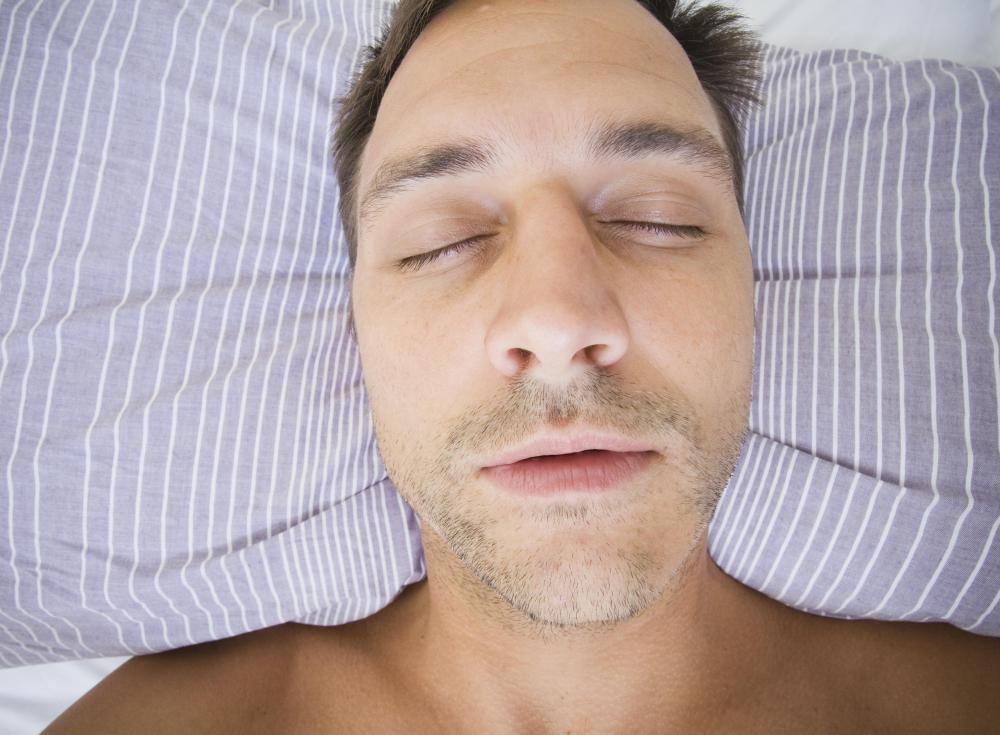At WiseGEEK, we're committed to delivering accurate, trustworthy information. Our expert-authored content is rigorously fact-checked and sourced from credible authorities. Discover how we uphold the highest standards in providing you with reliable knowledge.
What is a Nightguard?
A nightguard, or night guard, is an appliance much like a retainer that people put in their mouths to protect their teeth while they are sleeping. This device is commonly used by people who suffer from bruxism, or excessive nighttime tooth grinding or clenching. This grinding and clenching puts pressure on the jaw, which can cause temporomandibular joint (TMJ) problems, severe headaches, ear pain, and neck pain as well as causing excessive wear to the teeth.
Thin, transparent, and horseshoe-shaped, dental nightguards are created from hard but moldable plastics. The nightguard fits over either the upper or the lower teeth, creating a cushion between them and absorbing the impact of the grinding or clenching. Nightguards can help reduce enamel damage, jaw joint inflammation, and irritation to the gums. Overall, most nightguard wearers report they have less pain and sleep better.

In order to be truly effective, nightguards need to be custom-made for each individual. It typically takes two dentist appointments to receive a nightguard. During the initial visit, the dentist takes a bite record and makes an impression of the patient’s teeth. These will be used to create a customized nightguard that allows for proper teeth alignment. During the second appointment, the patient gives the nightguard a test run and the dentist makes any necessary adjustments.

Nightguards can lasts up to ten years if they are given proper care. Nightguards should always be rinsed just before and just after wearing, and they need to be brushed with a soft toothbrush and non-abrasive toothpaste or denture cleaner once a day. They should also be soaked in denture cleaner once a week to keep them clean and fresh.
Nightguards have several drawbacks, however. They can be fairly expensive, running between $300 and $800 US Dollars (USD) each. In addition, if the nightguard does not fit just right, it can cause the wearer significant pain. Some nightguard wearers have reported waking up with a headache or intense jaw pain, and others claim they are not able to sleep at all.

Despite these disadvantages, many people view the nightguard as a simple solution for protecting teeth and jaws from the damaging effects of bruxism. It is important to keep in mind that the cost of repairing or capping worn down teeth will be even more expensive than one of these nighttime dental appliances.
AS FEATURED ON:
AS FEATURED ON:















Discuss this Article
Post your comments